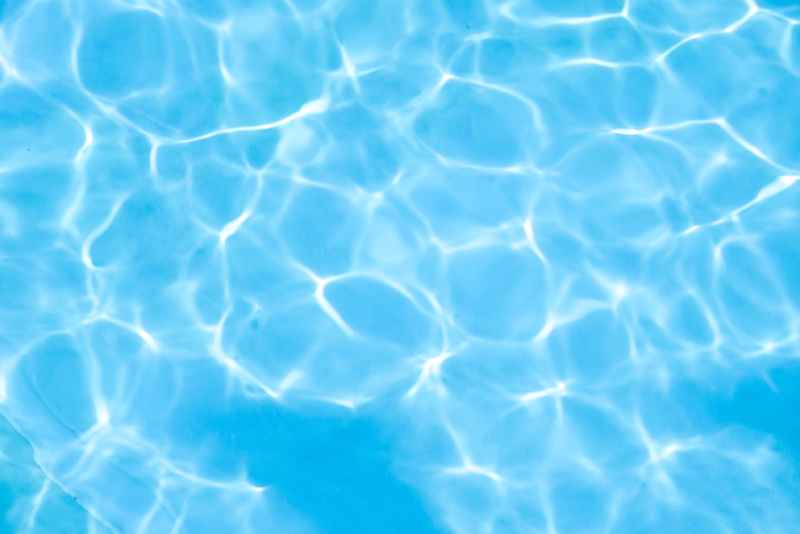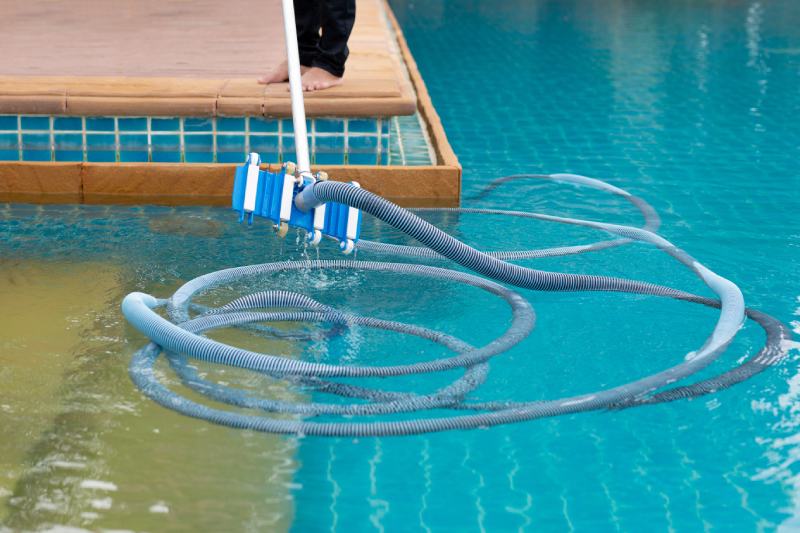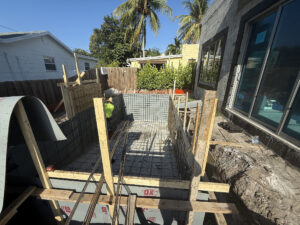Maintaining the proper balance of chemicals in your pool is crucial for its longevity and overall health. One of the critical components of water chemistry is calcium hardness. In this blog post, we will explore the effects of high and low calcium hardness levels in your pool and discuss the importance of maintaining optimal balance. Whether you are a pool owner or considering pool installation, understanding the impact of calcium hardness will help you keep your pool in optimal condition.
What is Calcium Hardness?
Calcium hardness refers to the concentration of calcium ions in your pool water. It is measured in parts per million (ppm). Calcium is naturally present in water, and maintaining the right balance is essential to prevent scale formation, corrosion, and cloudy water.
The Effects of High Calcium Hardness
When the calcium hardness level in your pool water is too high, it can lead to several problems. Here are some of the effects:
Scale Formation: High calcium levels can cause scale formation on pool surfaces, equipment, and plumbing. This scale can be unsightly and difficult to remove, affecting the aesthetics and functionality of your pool. Additionally, it can lead to common pool issues.
Cloudy Water: Excessive calcium can contribute to murky water, making it unappealing for swimming and reducing water clarity.
Clogged Filters: High calcium levels can lead to clogged filters as the excess calcium precipitates out of the water and accumulates in the filter media. This reduces the efficiency of the filtration system and requires frequent cleaning or replacement of filters. For further information on filter maintenance, see our post on pool filters and their importance.
Reduced Efficiency of Sanitizers: Excess calcium can interfere with the effectiveness of chlorine or other sanitizers, requiring higher chemical dosages to maintain proper disinfection.
The Effects of Low Calcium Hardness

On the other hand, when the calcium hardness level in your pool water is too low, it can also cause issues. Here are the effects of low calcium hardness:
Corrosion: Insufficient calcium hardness can result in the water becoming corrosive, leading to damage to pool surfaces, equipment, and plumbing. This corrosion can shorten the lifespan of your pool and result in costly repairs.
Staining: Low calcium levels can contribute to staining on pool surfaces, especially if the water is also low in pH. These stains can be difficult to remove and detract from your pool’s appearance.
Weakened Pool Structure: In extreme cases of low calcium hardness, the water can leach calcium from the pool’s concrete or plaster, causing structural damage and compromising the integrity of the collection.
Skin and Eye Irritation: Low calcium levels can make the water aggressive and cause skin and eye irritation for swimmers.
Maintaining the Optimal Calcium Hardness Level
It is essential to maintain the optimal balance to avoid the problems associated with both high and low calcium hardness. A pool’s recommended calcium hardness level is typically between 200 and 400 ppm. Here are some steps to maintain the proper calcium hardness level:
Regular Testing: Regularly test the calcium hardness level using a pool water testing kit or by seeking a professional pool service. This will help you monitor the calcium hardness and make necessary adjustments.
Adjusting Calcium Hardness: If the calcium hardness is too high, dilution with fresh water or using a sequestering agent can help lower the levels. If it is too low, calcium hardness increases for adding calcium chloride can help raise the levels.
Consult Pool Professionals: Seeking guidance from pool professionals or a pool maintenance service can ensure accurate testing and appropriate adjustments to maintain the optimal calcium hardness level. The benefits of professional pool maintenance are significant and well worth the investment.
Balanced Water Chemistry: Maintain balanced water chemistry, including pH and alkalinity, as these factors can also influence calcium hardness levels. Suitably flat water will help prevent issues related to calcium hardness. Balancing swimming pool water is an essential step to avoid problems related to calcium hardness.
Regular Maintenance: Clean and maintain your pool to prevent scale formation and other problems associated with high calcium hardness. This includes brushing the pool walls, cleaning the filter, and ensuring proper circulation. Check out our blog post on avoiding common pool vacuuming mistakes for more tips.
Professional Pool Service: Consider hiring a professional pool service like Finns Pool Services to monitor and maintain your pool’s calcium hardness levels regularly. They have the expertise and knowledge to keep your pool water balanced and in optimal condition. If you’re interested, we also provide a pool acid bath service.
Importance of Professional Pool Services

While maintaining proper calcium hardness levels is crucial, it can sometimes be challenging for pool owners to handle it independently. That’s where professional pool services come in. Here are some reasons why you should consider hiring a professional pool service like Finns Pool Services:
Expertise and Knowledge: Professional pool service technicians are trained and experienced in all aspects of pool maintenance, including water chemistry and calcium hardness. They have the expertise to accurately test and adjust the calcium hardness levels to keep your pool in optimal condition.
Time and Convenience: Proper calcium hardness levels require regular monitoring, testing, and adjustments. Hiring a professional pool service saves you time and effort, allowing you to enjoy your pool without the hassle of extensive maintenance.
Enjoy a Well-Balanced Pool with Optimal Calcium Hardness
Maintaining the proper calcium hardness level is essential for the longevity and performance of your pool. With the help of Finns Pool Services, you can ensure that your pool water remains well-balanced, preventing issues associated with high or low calcium hardness. From regular testing to professional adjustments, we have the expertise and resources to keep your pool in optimal condition.
Proper calcium hardness management is crucial for a well-maintained pool. Whether dealing with the effects of high or low calcium hardness, regular monitoring, and adjustments are necessary to avoid potential problems. With professional services like Finns Pool Services, you can enjoy a hassle-free pool ownership experience, knowing that your pool’s calcium hardness and overall water chemistry are expertly maintained. Invest in professional pool services and experience the joy of a well-balanced and inviting pool all year round.
Benefits of Choosing Finns Pool Services
Finns Pool Services stands out as a trusted choice when it comes to reliable pool maintenance and calcium hardness management. Here are some benefits of choosing our services:
Expert Team: Our team consists of skilled and knowledgeable pool technicians with extensive pool maintenance experience. They stay up-to-date with the latest industry trends and techniques to provide you with top-notch service.
Comprehensive Services: We offer a wide range of pool services, including regular maintenance, water testing, calcium hardness adjustment, and overall pool care. With Finns Pool Services, you can have peace of mind knowing that every aspect of your pool will be professionally managed.
Customized Approach: We understand that every pool is unique, with its own specific needs. That’s why we take a personalized approach to our services, tailoring our solutions to meet the requirements of your pool. Whether you have a residential or commercial swimming pool, we will develop a customized plan to maintain the ideal calcium hardness levels.
Timely and Reliable: We value your time and strive to provide prompt and reliable service. Our technicians adhere to schedules and promptly address your pool maintenance needs. We are committed to keeping your pool in the best possible condition all year round. You can look at our Pool Water Chemistry Balancing service.



